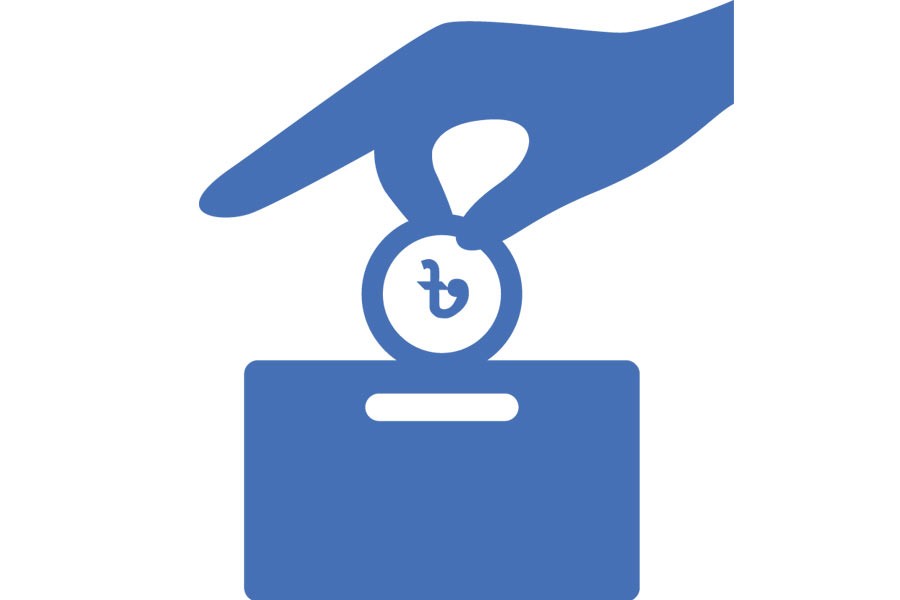Government's revenue authorities have decided to conduct afresh an impact assessment of the new VAT law, pending its now-deferred enforcement, as skepticism cropped up.
Sources said the National Board of Revenue (NBR) made the decision as some field-level scrutiny pointed out merits and demerits of the set flat rate and multiple rates of VAT.
The Value Added Tax and Supplementary Duty Act 2012, readied to have been implemented from July 1 this year, was eventually deferred until July 1, 2019. And the latest move is made to assess its positive and negative impacts on the consumers before its deferred execution.
A mitigation strategy would be devised if the impact assessment found any adverse effect of the new VAT law on the economy at large.
Both public and private sectors would participate in the impact assessment so that opinion of businesses could be incorporated into the reckonings.
A research organization is expected to be assigned to the task of impact assessment.
The Vat online Project (VoP) authorities under the NBR are set to sit with the business chambers, association leaders, other business leaders, academics and research think tanks tomorrow (Sunday) to discuss the impact-assessment modalities.
The revenue board will seek their opinion about the scope of the research, methodology and expected outcomes, and some other issues related to enforcement of the deferred law.
Senior secretary of the Internal Resources Division (IRD) and NBR chairman Md Nojibur Rahman will chair the meeting.
Officials said the VAT authority took the decision as they got two years time after deferment of execution of the new VAT law. The law was scheduled to come into force on July 1, 2017, replacing the existing VAT law 1991.
The law has been put on hold till 2019 following recommendations of the business community.
Businesspeople protested implementation of the law from the current Fiscal Year (FY) fearing price escalation of essentials and power and knock-on adverse effect on the businesses.
On the other side of the conundrum, the NBR has campaigned the whole year highlighting positive impact of the new VAT law on the consumers and businesses both.
Vat officials said neither the government nor private sector conducted intensive impact assessment before making their respective value judgment on the new tax law.
All of the assumptions on the new VAT law turned out to be hypothetical, not based on facts, they said.
Earlier, Policy Research Institute (PRI), a private research think-tank, conducted a primary study and said overall inflationary impact of the new VAT law, with 15 per cent uniform rate of the tax, would merely be a one-off 0.5-0.7 per cent.
After completion of the impact assessment, the VAT authorities would take certain decision about removing bottlenecks on implementation of the new VAT law.
In the current budget for FY 2017-18, the finance minister had proposed to implement the new VAT law from July 1. Later, he backtracked on the move following instruction of the Prime Minister.
The new law in waiting has the provision to impose VAT at a uniform rate of 15 per cent on all taxable businesses. It would introduce a digitised VAT collection-and-payment system and ease the process of obtaining VAT rebate.
Earlier, VAT commissioner of the Large Taxpayers Unit (LTU) Md Matiur Rahman conducted an assessment of impact of the new VAT law on the basis of his experience of field-level office operation.
In his exercise he found concern over a few crucial and sensitive areas, including possible hike in power and gas price. And such foreboding played a major role in making the authorities backpedal for now.
The study found almost 80 per cent of the existing businesses unable to run business activity under digitised systems while some sectors and products are unable to claim rebate on their paid VAT at the time of procuring raw materials.
It pointed out some essential products that would never be in a position to claim rebate on their procured raw materials.
For instance, consumers would have to bear the brunt of price hike due to 15 per cent uniform rate of VAT.
The analysis yielded a recommendation for imposition of VAT on the basis of value addition instead of imposing 15 per cent uniform rate of VAT on all products and services.
Although the NBR claimed power and gas tariffs would not increase despite increasing the VAT rate to 15 per cent from 5.0 per cent due to input-credit mechanism, the ground-level assessment found the process cumbersome.
The analysis found the consumers would have to pay Tk 1.35 instead of Tk 0.45 after implementation of new law.
Also, the findings showed that withdrawal of tariff value from powered milk produced from liquid milk, powdered spices, biscuits, LP gas, paper products, brick, electric pole, MS products, energy-saving bulbs, 15 per cent VAT on gold may push up the prices with the imposition of 15 per cent VAT.
Wood from trees, old scraps, clay, sand, cow milk, wheat, flour, eggs etc are raw materials for the products where claiming VAT chalan is impossible.
Differences between ceiling of enlisting and registration and VAT- exemption ceiling in the new law may also cause uneven playing field for the businesses and squeeze the VAT net. Consumers would prefer purchasing products from the shop that is VAT-exempted.
The analysis says save five countries---Sri Lanka, New Zealand, Vietnam, South Korea and South Africa--VAT is imposed at multiple rates all over the world.


